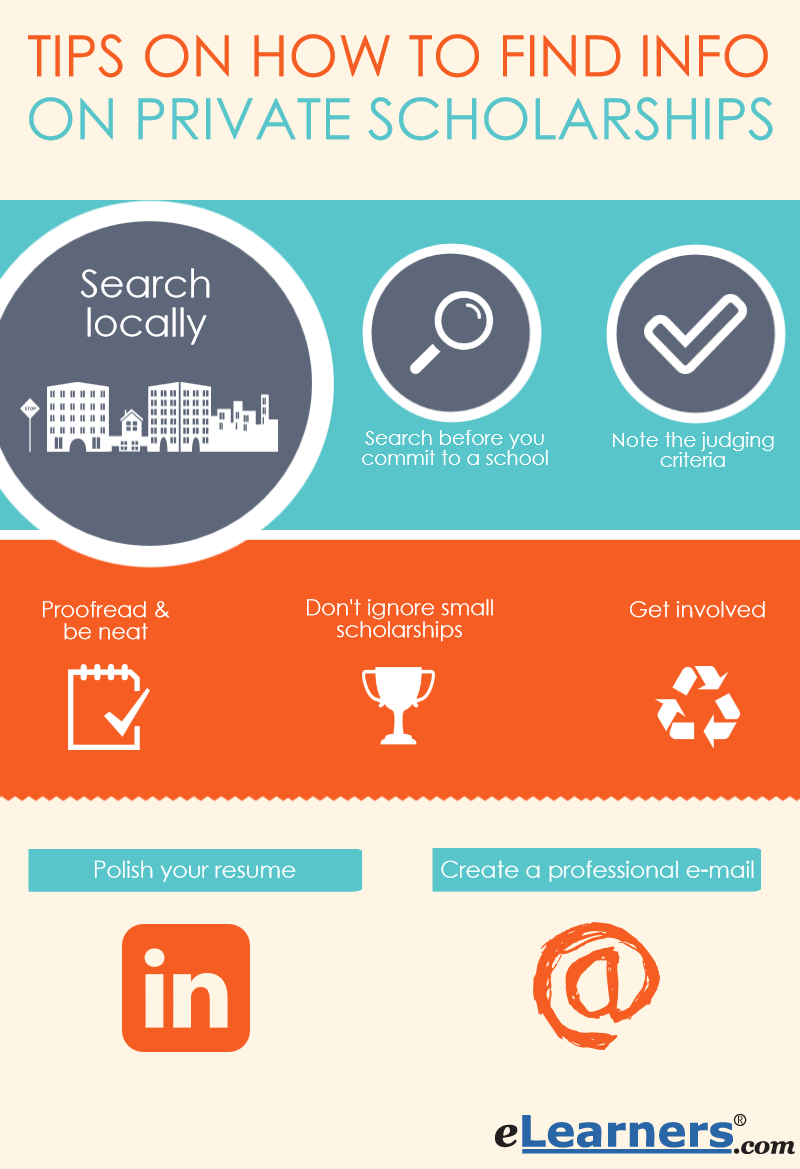Using Search Tools to Find Hidden Scholarship Opportunities

Uncover the untapped potential of funding your education by mastering the art of scholarship searching. Beyond the well-known national awards lie a plethora of niche scholarships waiting to be discovered. This article will equip you with the knowledge and strategies to effectively utilize search tools, moving beyond generic queries to pinpoint hidden scholarship opportunities. Learn how to leverage keywords, filters, and specialized databases to identify awards that perfectly match your unique background, academic pursuits, and extracurricular activities. Optimize your search and increase your chances of securing funding for your educational dreams.
Unearthing Hidden Gems: Leveraging Search Tools for Scholarship Opportunities
Defining "Hidden" Scholarships
Hidden scholarships aren't necessarily secret, but rather less widely publicized than national awards. These are often offered by smaller, regional organizations, local businesses, community groups, or even specific departments within universities. They tend to receive fewer applications, increasing your chances of winning. Finding them requires a strategic approach to searching, moving beyond the typical large scholarship databases and delving into niche areas of interest and local resources. Identifying them involves using targeted keywords and filtering through search results effectively.
Advanced Search Techniques for Targeted Results
Generic searches like "scholarships for students" will yield overwhelming results. Instead, employ advanced search operators (e.g., using quotation marks for exact phrases, "site:" to search within a specific domain, or "-" to exclude certain terms). Experiment with combinations of keywords that describe your academic field, extracurricular activities, demographic background, and geographic location. For example, try "scholarships for [your major] in [your city] AND [your hobby/club]." Remember to refine your search queries continuously based on the results you're getting. Boolean search can also be useful.
Leveraging University and College Websites
Your prospective or current university's website is a treasure trove of scholarship information. Navigate to the financial aid section and explore departmental scholarships, alumni association awards, and grants specifically for students in your program. Don't overlook the smaller, more specific awards listed on individual department websites. Faculty and advisors can also provide valuable insights into lesser-known scholarships that align with your academic pursuits. Always check for internal deadlines that may differ from external scholarship deadlines.
Exploring Industry and Professional Associations
Many industries and professional organizations offer scholarships to students pursuing related fields. Search for associations relevant to your chosen career path (e.g., the American Society of Civil Engineers for engineering students). These scholarships often come with networking opportunities and internships, which can further boost your career prospects. Look for membership requirements and eligibility criteria specific to each association. These awards can be very targeted and often have less competition than general scholarships.
Using Social Media and Online Communities
Social media platforms and online forums can be surprisingly helpful in discovering hidden scholarships. Join relevant groups on Facebook, LinkedIn, and Reddit where students and professionals share information about scholarships, grants, and other funding opportunities. Follow organizations and companies that support students in your field of study. Set up alerts and notifications to stay informed about new postings and deadlines. Be cautious of scams and verify the legitimacy of any scholarship opportunity before applying. Always prioritize official websites when confirming information.
| Search Tool | Key Features | Best Use Case | Potential Drawbacks |
|---|---|---|---|
| Google Advanced Search | Boolean operators, site-specific searches, date range filters. | Finding scholarships on specific organization websites, filtering out irrelevant results. | Requires understanding of search operators, can still yield a large number of results. |
| Networking with professionals, joining industry-specific groups, following relevant companies. | Discovering scholarships offered by professional associations or companies in your field. | Requires a professional profile, can be time-consuming to filter through irrelevant content. | |
| University Financial Aid Website | Lists internal and external scholarships, grants, and loan options. | Finding scholarships specifically for students at your university or in your program. | Limited to scholarships offered or promoted by the university. |
| Fastweb | Large scholarship database, personalized matching based on profile information. | Quickly identifying scholarships that match your interests and qualifications. | Can be overwhelming with the sheer number of listings, may include less relevant scholarships. |
| Niche-Specific Forums (e.g., Reddit) | User-generated content, discussions about scholarships and funding opportunities. | Discovering hidden or lesser-known scholarships shared by other students. | Requires careful vetting of information, potential for scams or inaccurate information. |
How do I find hidden scholarships?

Local Community Organizations
Local community organizations are a great place to start your search for hidden scholarships. They often have funds available to support local students pursuing higher education. To effectively find these scholarships, consider these steps:
- Identify local organizations: Research community foundations, rotary clubs, chambers of commerce, and other civic groups in your area. These organizations often have scholarship programs specifically for local students.
- Check their websites and contact them directly: Visit the websites of these organizations to see if they offer scholarships. If the information isn't readily available online, don't hesitate to reach out to them directly via phone or email.
- Attend local events and network: Go to community events and meetings to network with people involved in these organizations. They may be able to provide you with information about scholarship opportunities that you wouldn't find elsewhere.
Professional Associations Related to Your Field
Professional associations tied to your chosen field of study are a fantastic resource for niche scholarships. These organizations often aim to support the next generation of professionals in their industry. Here's how to tap into these resources:
- Research relevant associations: Identify professional associations related to your major or career goals. For example, if you're studying engineering, look into organizations like the Institute of Electrical and Electronics Engineers (IEEE) or the American Society of Civil Engineers (ASCE).
- Explore their websites and membership benefits: Many associations offer scholarships as a membership benefit or to students pursuing related fields. Check their websites for scholarship details, eligibility requirements, and application deadlines.
- Consider becoming a student member: Some associations offer discounted student memberships that provide access to scholarship opportunities and other valuable resources like networking events and mentorship programs.
Employer-Sponsored Scholarships
Many employers offer scholarships to their employees or their dependents. These opportunities are often overlooked but can be a significant source of funding. To investigate this avenue, follow these guidelines:
- Inquire with your parents' employers: If your parents are employed, ask them to check with their HR departments about scholarship programs for dependents of employees.
- Check with your own employer: If you work part-time or full-time, inquire with your employer about any available scholarship opportunities for employees pursuing further education.
- Review employee benefits packages: Some companies include information about educational assistance programs and scholarships in their employee benefits packages. Take the time to review these materials carefully.
Scholarships for Specific Demographics
Scholarships targeted towards specific demographic groups, such as ethnicity, gender, religion, or disability, can be less competitive than general scholarships. Here’s how to find them:
- Research scholarships based on your ethnicity or heritage: Many organizations offer scholarships specifically for students of certain ethnic or cultural backgrounds. Examples include the United Negro College Fund (UNCF) for African American students and the Hispanic Scholarship Fund (HSF) for Hispanic students.
- Look into scholarships for women: Organizations like the American Association of University Women (AAUW) offer scholarships to support women pursuing higher education, particularly in STEM fields.
- Explore scholarships for students with disabilities: Several organizations provide scholarships for students with disabilities. The National Center for Learning Disabilities and other disability-related organizations are great resources.
University Departmental Scholarships
Individual departments within a university often offer their own scholarships to students enrolled in their programs. These scholarships can be highly targeted and less competitive than university-wide awards. To explore these departmental scholarships:
- Contact the departments related to your major: Reach out to the academic departments within your university that align with your field of study. Ask about any departmental scholarships or funding opportunities available to students in their programs.
- Check departmental websites and bulletin boards: Visit the websites of these departments and look for announcements about scholarship opportunities. Also, check physical bulletin boards in department buildings for posted information.
- Attend departmental information sessions: Attend information sessions and workshops hosted by your department. These events often include details about scholarships and other resources available to students.
What tool allows students to search for scholarships?

What are the Key Features of Scholarship Search Engines?
Scholarship search engines offer a range of features designed to help students efficiently find relevant awards. A robust search function is critical, allowing students to specify their field of study, GPA, ethnicity, location, and other relevant factors. Many platforms also provide personalized recommendations based on the student's profile. Furthermore, a good search engine will maintain an up-to-date database and clearly display eligibility requirements and application deadlines. Below is a list of key features:
- Advanced Filtering Options: Enables narrowing down scholarships based on specific criteria.
- Personalized Recommendations: Suggests scholarships that align with the student's profile.
- Up-to-Date Database: Ensures access to the most current scholarship opportunities.
How Can Students Effectively Utilize Scholarship Search Engines?
To maximize the effectiveness of scholarship search engines, students should adopt a strategic approach. Begin by creating a detailed profile that accurately reflects your academic achievements, extracurricular involvement, and financial situation. Use a variety of keywords when searching, and don't be afraid to explore niche scholarships that may have fewer applicants. Be meticulous about meeting deadlines and carefully review all application requirements. Below is a list of effective utilization steps:
- Create a Detailed Profile: Provide accurate and comprehensive information about yourself.
- Use a Variety of Keywords: Broaden your search to uncover hidden opportunities.
- Meet Deadlines and Review Requirements: Ensure timely and accurate application submissions.
What are the Alternatives to Traditional Scholarship Search Engines?
While scholarship search engines are the most common tool, alternative resources are available. University financial aid websites often list institutional scholarships and grants that are specific to that school. Professional associations in various fields frequently offer scholarships to students pursuing related degrees. Community organizations, such as local businesses and charities, may also provide scholarships to residents. Consider also employer-sponsored scholarship programs for children of employees. Here are some alternative resources:
- University Financial Aid Websites: Explore institutional scholarships and grants.
- Professional Associations: Check for scholarships related to your field of study.
- Community Organizations: Investigate local scholarship opportunities.
What are the Common Pitfalls to Avoid When Searching for Scholarships?
Several pitfalls can hinder a student's scholarship search. One common mistake is relying on a single source of information. Another is failing to read the eligibility requirements carefully, leading to wasted time applying for scholarships that are not a good fit. Be wary of scholarship scams that require upfront fees or ask for sensitive personal information. Always verify the legitimacy of a scholarship provider before applying. Don't overlook smaller, less competitive scholarships. Below are some common mistakes to avoid:
- Relying on a Single Source: Diversify your search across multiple platforms.
- Ignoring Eligibility Requirements: Carefully review the criteria before applying.
- Falling for Scholarship Scams: Be cautious of requests for fees or personal information.
How Can Students Stay Organized During the Scholarship Search Process?
Organization is crucial for managing the scholarship search process. Create a spreadsheet or use a dedicated app to track the scholarships you are interested in, along with their deadlines, requirements, and application status. Set reminders for deadlines to avoid missing out on opportunities. Keep copies of all application materials and correspondence. This organized approach will help you stay on top of the process and increase your chances of success. Here are some organization tips:
- Use a Spreadsheet or App: Track scholarships, deadlines, and application status.
- Set Reminders for Deadlines: Avoid missing out on opportunities.
- Keep Copies of Application Materials: Maintain a record of your submissions.
How to find scholarship opportunities?

University Scholarship Resources
Your university is often one of the best places to start your scholarship search. Many universities offer merit-based and need-based scholarships to attract and retain talented students.
- Visit the financial aid office: Schedule an appointment to discuss your financial situation and scholarship options.
- Check the university website: Most universities have a dedicated scholarship section on their website.
- Talk to your academic advisor: They may be aware of scholarships specific to your major or department.
Online Scholarship Databases
The internet provides a wealth of scholarship information. Many websites specialize in compiling and listing scholarship opportunities from various sources.
- Use reputable websites: Some popular options include Fastweb, Scholarships.com, and Sallie Mae.
- Create a profile: Most databases allow you to create a profile to match you with relevant scholarships.
- Be wary of scams: Never pay money to apply for a scholarship. Legitimate scholarships are free to apply for.
Local Community Scholarships
Don't overlook scholarship opportunities offered by local organizations, businesses, and community groups. These scholarships often have less competition than national awards.
- Check with local businesses: Many businesses offer scholarships to students in their community.
- Contact civic organizations: Groups like the Rotary Club and Lions Club often offer scholarships.
- Explore community foundations: These foundations often manage scholarship funds for local students.
Scholarships Based on Specific Criteria
Many scholarships are targeted towards students with specific characteristics or pursuing particular fields of study.
- Consider your background: Search for scholarships based on your ethnicity, gender, religion, or other affiliations.
- Explore your field of study: Many professional organizations offer scholarships to students pursuing degrees in their field.
- Highlight your achievements: Look for scholarships that recognize academic excellence, leadership, or community service.
Employer-Sponsored Scholarships
If you or your parents are employed, inquire about employer-sponsored scholarship programs. Some companies offer scholarships to employees and their dependents.
- Ask your HR department: Inquire about available scholarship or tuition reimbursement programs.
- Check company websites: Some companies publicly advertise their scholarship programs.
- Explore union benefits: If you or your parents are union members, check if the union offers scholarships.
What is arguably the best scholarship search engine?

Vast Database and Comprehensive Coverage
- Scholarships.com's extensive database is a major strength, encompassing a wide variety of scholarships, grants, and fellowships.
- It includes opportunities from national and local organizations, colleges and universities, and private foundations.
- The sheer volume of listings increases the likelihood of students finding scholarships that match their unique profiles.
Advanced Search Filters and Personalization
- The platform offers robust search filters that enable users to refine their search based on GPA, major, ethnicity, location, and other relevant criteria.
- This personalization ensures that students are presented with scholarships that they are most likely to be eligible for, saving them time and effort.
- The site's algorithm also learns from user behavior, further improving the relevance of search results over time.
User-Friendly Interface and Navigation
- Scholarships.com is known for its intuitive and easy-to-navigate interface, making it accessible to students of all technical abilities.
- The website's design allows for a seamless search experience, reducing frustration and encouraging students to explore different scholarship options.
- Clear instructions and helpful tips are provided throughout the site, guiding users through the process of finding and applying for scholarships.
Additional Resources and Expert Advice
- Beyond simply listing scholarships, Scholarships.com offers a wealth of valuable resources, including articles on financial aid, tips for writing winning essays, and advice on navigating the college application process.
- This comprehensive approach helps students understand the broader financial aid landscape and make informed decisions about their education.
- The site also features expert advice from financial aid professionals, providing students with insights and guidance.
Regular Updates and Security Measures
- Scholarships.com prioritizes data accuracy and relevance by regularly updating its scholarship database.
- This ensures that students are presented with current information and that expired or inaccurate listings are removed.
- The platform also employs security measures to protect user data and prevent fraud, giving students peace of mind when using the site.
Frequently asked questions
How can I effectively use search engines to find niche scholarships?
Utilizing specific keywords related to your background, interests, and academic pursuits is crucial. Instead of generic terms like "scholarships," try combining keywords such as "scholarships for female engineering students in California" or "scholarships for students of Italian descent studying music." Experiment with different combinations and utilize advanced search operators like quotation marks for exact phrases ("environmental science scholarships") and the minus sign to exclude irrelevant terms (scholarships -athletic).
What are the best websites and databases for finding hidden scholarship opportunities?
Beyond the well-known scholarship websites, explore niche platforms and databases catered to specific fields of study, demographics, or locations. Websites maintained by professional organizations, community foundations, and universities often list scholarships that aren't widely advertised. Additionally, online directories and aggregators dedicated to scholarships can be valuable resources, but always verify the legitimacy of any scholarship opportunity before applying.
How can I leverage social media to uncover lesser-known scholarships?
Following relevant organizations, universities, and scholarship providers on social media platforms like LinkedIn, Facebook, and Twitter can alert you to new or less publicized opportunities. Join groups and communities related to your field of study or background, as members often share scholarship information within their networks. Use targeted hashtags to search for scholarships and engage with posts to expand your reach and discover hidden gems.
What are some red flags to watch out for when searching for scholarship opportunities online?
Be wary of scholarships that require an application fee, request sensitive personal information upfront, or promise guaranteed awards. Research the legitimacy of the organization offering the scholarship, checking for a valid website, contact information, and reviews. Avoid scholarships that sound too good to be true or pressure you to apply quickly. Always prioritize scholarships from reputable sources with transparent eligibility criteria and application processes.
